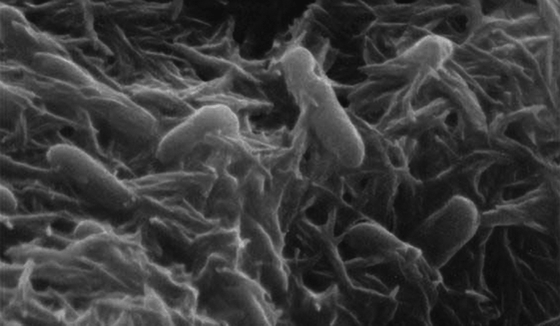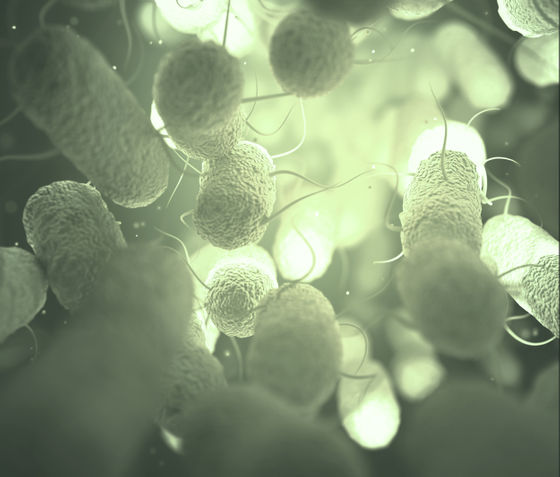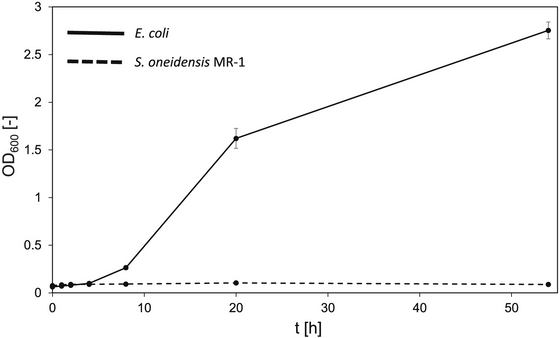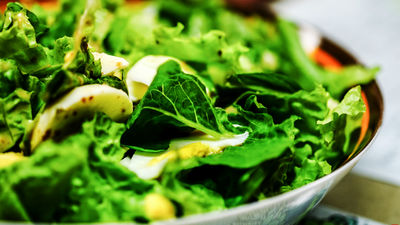``Escherichia coli that can generate electricity'' has appeared through genetic manipulation, moving from an era of waste treatment using energy to an era of generating energy from waste treatment

It has been reported that by modifying the genes of Escherichia coli to give it the ability to generate electricity, a power-generating bacterium was created that can grow in industrial wastewater, which contains large amounts of organic matter that is harmful to the environment.
Extracellular electron transfer pathways to enhance the electroactivity of modified Escherichia coli: Joule
Bacteria generate electricity from wastewater - EPFL
https://actu.epfl.ch/news/bacteria-generate-electricity-from-wastewater/
Scientists Engineer E. Coli Bacteria to Generate Electricity : ScienceAlert
https://www.sciencealert.com/scientists-engineer-e-coli-bacteria-to-generate-electricity
The bacterium ``Shewanella oneidensis'' discovered in Oneida Lake in New York in 1988 has attracted attention for its ability to reduce and metabolize metals and generate electrical energy, but it is difficult to grow in a specific way. The problem is that the range of applications is limited because it requires several chemical substances.

In a paper published in the peer-reviewed scientific journal Joule on September 8, 2023, a research team led by Professor Aldemis Boghossian of the Swiss Federal Institute of Technology in Lausanne engineered the genes of the common Escherichia coli (E. coli). announced that they had succeeded in acquiring the power generation ability of Shewanella oneidensis.
The research team first modified the genome of E. coli and added
The E. coli that was born in this way produced more than twice the amount of power that the conventional ``bioengineered E. coli'' had, which had only a portion of the power generating ability of Shewanella oneidensis.
'One of the key innovations of this study was the construction of a complete EET pathway in Escherichia coli,' the research team said in a university release. 'By integrating the components of MR-1, we were able to create an optimized pathway that spans the inside and outside of the cell.'

Even if bacteria with the ability to generate electricity were created, it would be meaningless if it requires a large amount of energy to reproduce because it is delicate or requires special food.
Therefore, the research team conducted an experiment in which they collected wastewater from a local beer brewery in Lausanne, Switzerland, and introduced the newly developed E. coli bacteria there. Breweries use water to wash grain and tanks, but the wastewater contains a large amount of sugar, starch, and a mixture of brewer's yeast, which is undesirable if left as is. Microorganisms will grow in it, so it must be treated before being discharged.
As a result of the experiment, it was confirmed that the E. coli bacteria introduced by the research team multiplied in large quantities in the brewery's wastewater. In contrast, Shewanella oneidensis was almost completely unable to reproduce in wastewater.

'It's a system that kills two birds with one stone, producing electricity at the same time as processing organic waste, rather than using energy to process it,' says Boghossian.・As a result of testing on wastewater collected from Brasseurs, we found that conventional electric microorganisms could not even survive, whereas the electric microorganisms that we bioengineered were able to multiply exponentially by feeding on waste. ” he said.
The fields in which this research can be applied are not limited to waste treatment. Genetically engineered E. coli bacteria can generate electricity from a variety of sources, so they have a wide range of potential applications, including microbial fuel cells and biosensing.
'We are excited about the future of bioelectric bacteria and can't wait to see companies scale this technology to new scales,' said Mohamed Mohib, lead author of the paper.
Related Posts:







